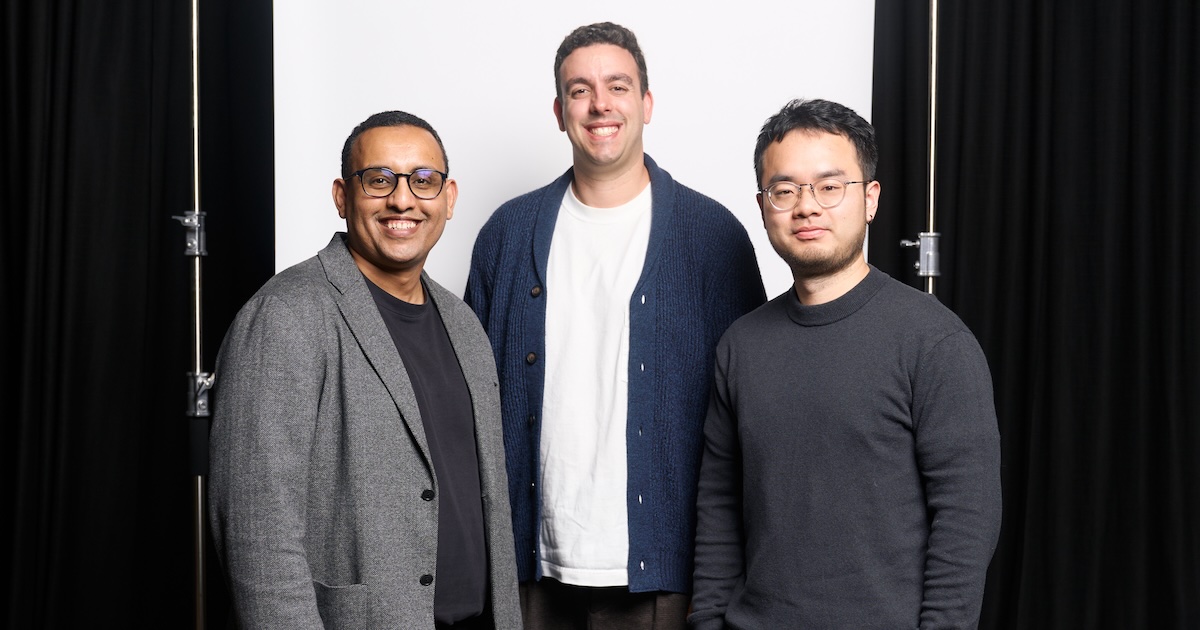
Investment Notes: Lorikeet
We are pleased to announce that Blackbird has led a USD $9M funding round into Lorikeet alongside Square Peg, Skip Capital, and strategic angels.
2025 will be the year of “Enterprise AI”
The last few years have been all about AI (Artificial Intelligence).
2023 was the year of consumer AI. ChatGPT was launched in Nov 2022, Canva rolled out its Magic Suite, and new modes of search have become standard (eg. Perplexity). Consumer adoption has matured and today, over 50% of Australians are using generative AI.
2024 was the year of prosumer AI. It was a year where co-pilots took off such as Heidi for doctors, Springboards for creatives, copilots for engineers, etc - products adopted bottoms up by professionals looking for ways to streamline their daily workloads. This is an exciting theme which we have shared some reflections on.
But while AI adoption across consumers and prosumers has skyrocketed, the rate of adoption within enterprises has noticeably lagged. Enterprises have more complex needs - bespoke use cases, proprietary data, integrations, security, etc - and often don’t have the right resources to execute. According to Cisco, 85% of enterprise CEOs see it as a top priority to roll out an AI strategy in the next 18 months, while only 13% believe they have the capabilities to do so.
This is starting to change. To kick the year off, Telstra and Accenture announced a $700m 5-year joint venture to accelerate AI development and adoption across the organisation.
We expect to see a lot more of this, and believe that 2025 will be the year of “enterprise AI”.
.png)
The low hanging fruit of customer support
Of all the opportunities within the enterprise, customer support is the lowest hanging fruit.
For most organisations, support is both a huge cost centre and a significant driver of customer experience. At the same time, LLMs (large language models) are at a point where AI can handle a rapidly expanding list of text and voice-based customer needs with greater speed, lower cost, more control, and higher accuracy.
Early adopters have seen huge savings. In February 2024 for example, Klarna launched an AI assistant that within one month was handling two thirds of its customer inquiries and saving an estimated $40M in support costs.
With savings like these, the market opportunity for customer support AI is enormous. AI competes for customer service/headcount budgets, which are generally over 10x the scale of support software budgets.
Tackling complexity head on
Glaring opportunities like this don’t go unnoticed and there are a number of players fighting for a piece of the market pie. Larger incumbents have scrambled to launch their own solutions, and a handful of startups have begun to attract attention and funding.
Our bet is that there will be a handful of big winners in this market and that Lorikeet has a shot at being one of them.
Lorikeet is cofounded by Steve Hind (ex Stripe) and Jamie Hall (ex Google Brain) who bring the perfect mix of product execution and AI expertise. They are magnets for talent and are building a team of A-players around them.

Many solutions in the market tackle the more basic Level 1 support tickets (eg. “how long does shipping typically take?”) and tend to be built “Retrieval-Augmented Generation (RAG) first”, pointing LLMs at help center FAQs.
Lorikeet differentiates itself by tackling the more complex support ticketing needs of customers (eg. “I’ve lost my credit card and need a new one”) and not just answering those problems, but solving them (updating addresses, shipping the card, etc). It achieves this through a “Workflows first” approach. Lorikeet’s platform enables customers to:
- Review customer support patterns
- Draft workflows for triaging and resolving different types of tickets based off company policies and past human responses
- Integrate with their existing core systems (eg. Stripe, Shopify, etc) to enable real time insights and API-actioning
- Monitor and evaluate model performance
Not only has Lorikeet started with the hardest tickets, but also the hardest customers too (eg. healthcare and financial services) who have higher compliance and regulatory interests. Building for the most complex problems and customers ensures that Lorikeet is laying the foundations of the right technical architecture and are creating a moat to expand from.The move to AI processes in the support function is interestingly changing the profile of customer support teams for the future. Support is shifting from being primarily a “services function” (the main role being human “support agents”) to a “product function” (with new roles in product management and workflow engineering). And the philosophy of support is also shifting from a cost center to more of a customer experience mentality. Euc love 🐨We have come to get to know Lorikeet particularly well as they have grown and expanded their impact within Eucalyptus. Given the nature of its health subscription products, Eucalyptus has an enormous scale of customer inquiries to handle and many of these are complex and involve sensitive patient information. Over the past year, Lorikeet has iteratively grown to now handle over 40% of Eucalyptus’ complex ticketing volume, significantly cutting the average time for a first response to customer inquiry to 90 seconds, and improving CSAT (customer satisfaction) by over 10 ppts. Over the past year, ticketing has doubled at the company without any change in the size of the support team and all while ensuring compliance with clinical guidelines and regulations.
The results are impressive and Eucalyptus has meaningfully expanded its relationship with Lorikeet. “For us, it needs to make sense on cost, but ultimately delivering a superior customer experience is a huge focus for us … response times are down, CSAT is up, and the triaging alone is 10x better than anything else we’ve seen” - Eucalyptus.
Tom and Max, on behalf of Blackbird



.jpg)








.avif)
